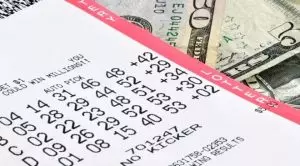 Campaigners have warned that the National Lottery is exploiting a legislative loophole that allows individuals as young as 16 to gamble hundreds of pounds online on a weekly basis.
Campaigners have warned that the National Lottery is exploiting a legislative loophole that allows individuals as young as 16 to gamble hundreds of pounds online on a weekly basis.
According to some campaigners, the loophole helps the National Lottery take advantage of the situation, which could lead to what they called “an epidemic of gambling” in the years to come. The latest figures have revealed that 16- and 17-year-old children spent a total of £47 million on games offered by the National Lottery in 2017-2018.
Reports have shown that two-thirds of that amount was spent on instant win online games and scratchcards, including Treasure Temple, Bingo Millionaire and Fruity £500s.
The minimum age at which UK residents are allowed to gamble is 18. This has basically left Camelot, the operator of the country’s National Lottery, with exclusive access to the teenage gambling market. For the time being, there are over 40 instant win games that are available to teenagers to choose from, with campaigners alerting that many of these games are being masked in the format of some popular board games such as Monopoly. Furthermore, some scratchcard games, such as Love Island have become popular with teenagers after being released by the National Lottery.
About 55,000 British Children Aged 11-16 Categorised as Problem Gamblers
 There has been some controversy at the time when the National Lottery of the UK was launched 26 years ago, under the Government of Prime Minister John Major. Previously such a lottery option had been blocked by Prime Minister Margaret Thatcher as she feared that such permission would encourage gambling in the country. The same controversy occurred in 1994 when the National Lottery was released, with some religious leaders having opposed the launch for similar reasons.
There has been some controversy at the time when the National Lottery of the UK was launched 26 years ago, under the Government of Prime Minister John Major. Previously such a lottery option had been blocked by Prime Minister Margaret Thatcher as she feared that such permission would encourage gambling in the country. The same controversy occurred in 1994 when the National Lottery was released, with some religious leaders having opposed the launch for similar reasons.
Thanks to the fact that the stakes offered by the National Lottery were low and seemed not to encourage problem gambling, with billions of pounds being raised for good causes, most of these objections have faded over the years. The introduction of so-called scratchcards fuelled some controversy, as there were fears it could encourage addictive behaviour. Still, that was not enough to tarnish the good reputation of the National Lottery.
However, the lottery and the company that operates it, Camelot, have faced much stronger controversy. Due to an existing loophole under which children over the age of 16 can access National Lottery games, schoolchildren are able to spend up to £350 every week gambling on these games. According to the findings of a 2018 investigation held by the UK Gambling Commission (UKGC), about 55,000 children aged between 11 and 16 were categorised as gambling addicts. A total of 450,000 underage individuals gambled on a regular basis.
The above-mentioned data has fuelled a lot of controversy in the sector, with an all-party parliamentary group on gambling-related harm having insisted on the implementation of an age limit on the online games offered by the National Lottery. Ms Carolyn Harris, the leader of the group, said that the age limit of such games must be raised to 18, to prevent the games from being accessed by underage individuals because of the existing legislative loophole.
- Author


